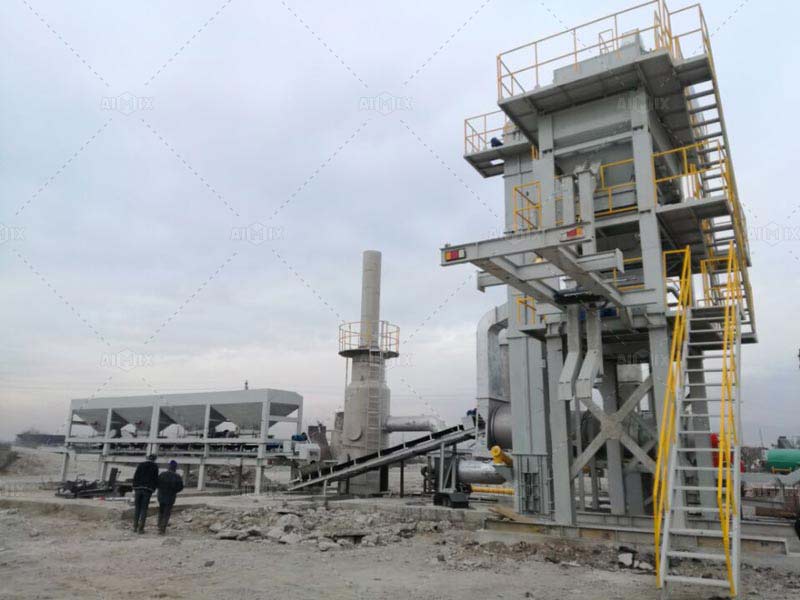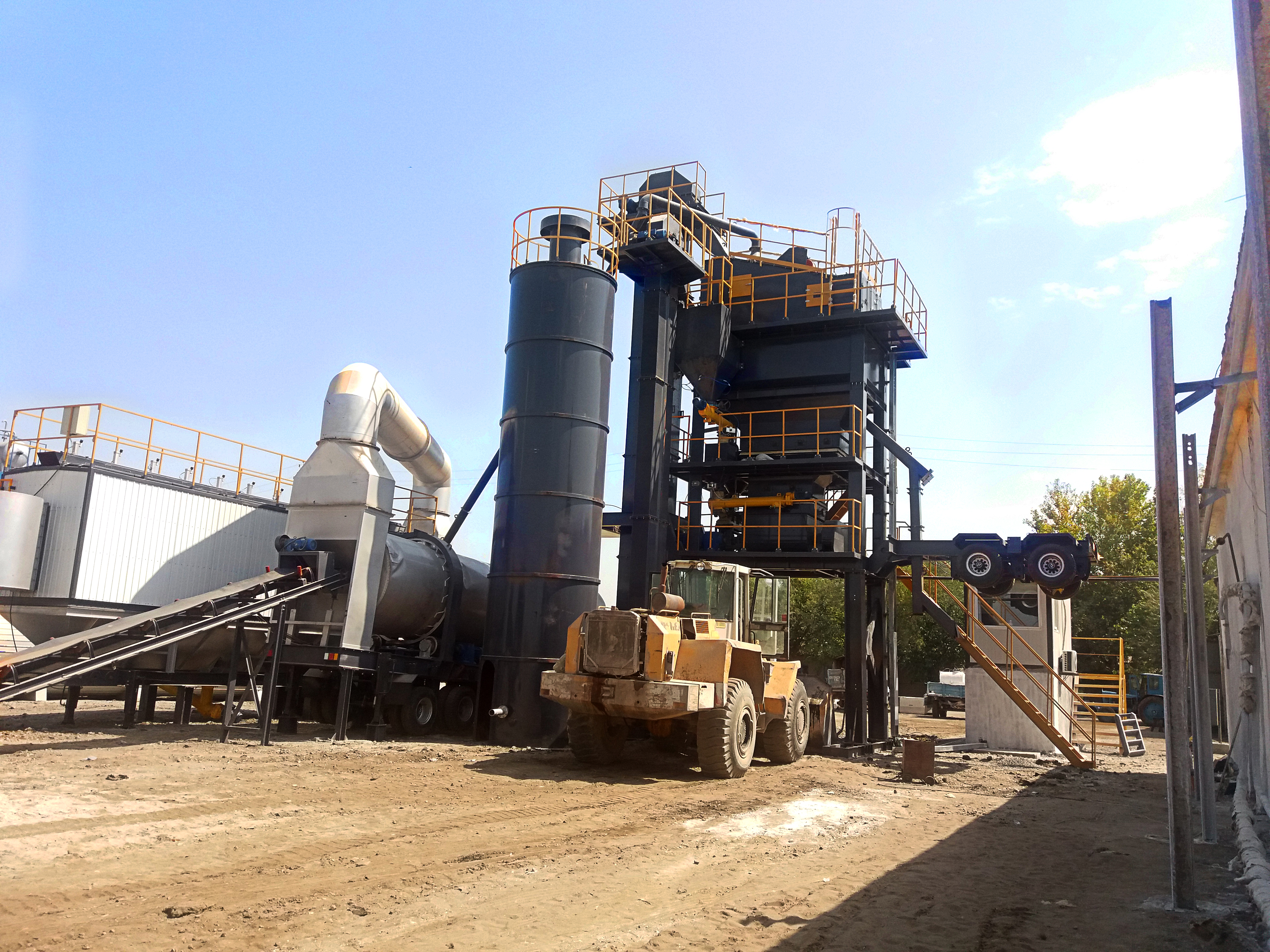Can a Mobile Asphalt Plant Mix While Moving?
A mobile asphalt plant is a crucial piece of equipment in road construction, offering flexibility and efficiency in producing asphalt mixtures. However, one common question amongst contractors and project managers is whether a mobile asphalt plant can mix asphalt while moving. Understanding how these plants operate and their limitations can help in choosing the right equipment for different projects.
Contents |
[edit] Understanding Mobile Asphalt Plants
[edit] What Is a Mobile Asphalt Plant?
A mobile asphalt plant is a portable version of a traditional asphalt plant, designed to be easily transported to different job sites. It allows asphalt production close to the construction area, reducing transportation costs and ensuring fresh, high-quality asphalt for paving.
[edit] How Does a Mobile Asphalt Plant Work?
Mobile asphalt plants follow the same basic principles as stationary plants:
- Aggregate drying and heating – Raw materials are dried in a drum.
- Mixing with bitumen – Heated aggregates are combined with bitumen and other additives.
- Storage and delivery – The final mix is transferred to storage silos or directly to trucks for paving.
Unlike continuous pavers, which lay asphalt while moving, mobile asphalt plants focus on batch or continuous mixing at a stationary position.
[edit] Can a Mobile Asphalt Plant Mix While Moving?
[edit] Stationary Mixing Process
A mobile asphalt plant is designed to be transported between job sites, but it must be stationary during production. The mixing process requires controlled heating, precise material proportions, and stable operating conditions, which are difficult to maintain while the plan is in motion.
[edit] Key Reasons Why Mixing While Moving Is Not Feasible
- Stability and Safety
- Precise Aggregate and Bitumen Ratio
- A consistent mix requires precise material proportions. Continuous movement would disrupt the controlled feeding of aggregates and bitumen, leading to uneven quality.
- Power and Fuel Supply
- Structural Limitations
- The design of mobile plants prioritises portability, but the mixing drum and drying components must remain steady for effective operation.
[edit] How Mobile Asphalt Plants Enhance Efficiency
[edit] Rapid Deployment and Setup
One of the biggest advantages of a mobile asphalt plant is its ability to be quickly relocated and set up near a construction site. This reduces downtime and ensures a continuous supply of fresh asphalt.
[edit] Reduced Transportation Costs
By producing asphalt directly at the site, mobile plants eliminate the need for long-distance asphalt transportation, cutting fuel and labour costs.
[edit] Adaptability for Different Projects
Whether for highway paving, rural road construction, or temporary projects, mobile plants offer flexibility in asphalt production without being tied to a single location.
[edit] Choosing the Right Asphalt Plant for Your Project
[edit] When to Use a Mobile Asphalt Plant
- Short-term projects requiring frequent relocation.
- Remote areas where transporting asphalt from a central plant is costly.
- Temporary road repairs where quick asphalt production is needed.
[edit] When to Consider a Stationary Asphalt Plant
- High-volume projects that require continuous production.
- Large-scale infrastructure projects with long construction timelines.
- Urban areas where a fixed asphalt plant can serve multiple sites efficiently.
[edit] Conclusion
While a mobile asphalt plant offers excellent flexibility for road construction projects, it cannot mix asphalt while moving. The mixing process requires stability, controlled material proportions, and precise heating, all of which are disrupted by movement. However, mobile plants still provide significant advantages by allowing on-site production, reducing transportation costs, and increasing efficiency in temporary and remote construction projects. Choosing the right asphalt plant depends on project size, location, and production needs.
[edit] Related articles on Designing Buildings
- A Short Overview Of An Asphalt Batching Plant Workflow
- A Summary of Concrete Plants: Advantages, Applications, and Types
- Adapting To Site Conditions And Improving Efficiency In Complex Latin American Terrain
- Asphalt.
- Asphalt mixing plant types and considerations
- Binder course.
- Bituminous mixing and laying plant.
- Can a Mobile Asphalt Plant Mix While Moving?
- Carbon Neutrality and Circular Economy Drive Transformation of Mining Equipment in Latin America.
- Case Studies of Peru and Colombia: The Impact of Policies on Crushing Station Procurement
- Component parts of a mobile concrete plant
- Concrete batching plants
- Concrete batching plants; technical requirements for large-scale infrastructure projects
- Concrete boom pumps
- Concrete Pump Selection and Efficiency Improvement Strategies in Latin American High-Rise Building Construction
- Detailed Explanation of Pre-Installation Preparations for Aggregate Crushing Plants
- Does a Ready-Mix Concrete Plant Need to Use a Water Heater?
- Does the Installation of a Mobile Concrete Plant Require a Foundation?
- Fixed VS Mobile Asphalt Plants: Which is More Suitable for Project Contractors?
- Global Brands in Latin America and the Market Share of Asphalt Plant Manufacturers
- Groundwater control in urban areas.
- Highway drainage.
- How Chilean Projects Achieve Green And Intelligent Production With Concrete Batching Plants
- How Peruvian Crushing Plants Can Achieve High Capacity And Low Energy Use
- How to Configure Aggregate Production Lines to Achieve Maximum Benefits
- How to Reduce the Energy Consumption of Drum Asphalt Plants?
- Infrastructure.
- Investing in a Portable Concrete Plant
- Is a Self-Loading Concrete Mixer Suitable for Rugged Environments?
- Mastic Asphalt Council.
- Mastic asphalt flooring.
- Mobile asphalt stations.
- Multi-Point Mobile Stone Crushers Under Dispersed Raw Material Distribution
- Overview of the road development process.
- Potential environmental and circular economic value of concrete pumps
- Ready-Mix Vs Conventional Batching Plants: Intelligent Control Differences
- Road construction.
- Road joints.
- Runway construction.
- Self-loading concrete mixers
- Self-loading concrete mixer training and team management
- Small Concrete Plants vs Large Plants: Which One is More Suitable for Your Project Needs?
- Social Responsibility and Sustainability in Stone Crushing Plants in Latin America
- Technical Engineer's Perspective: Performance of Concrete Trailer Pumps in High-Rise Buildings
- The Impact of the Accuracy of the Weighing System on Asphalt Plants
- Top Rated Concrete Mixer Truck Parts In Your Town
- Tracked Mobile Aggregate Crusher Plant with Oil Electric Dual-use
- Types of road and street
- What Are the Basic Parameters of a Mobile Asphalt Plant?
- What Are The Hidden Advantages Of A Mobile Asphalt Plant That Can Be Remotely Monitored?
- Why Is the Concrete Trailer Pump Powerful?
- What to Look for in a Concrete Batching Plant
Featured articles and news
UKCW London to tackle sector’s most pressing issues
AI and skills development, ecology and the environment, policy and planning and more.
Managing building safety risks
Across an existing residential portfolio; a client's perspective.
ECA support for Gate Safe’s Safe School Gates Campaign.
Core construction skills explained
Preparing for a career in construction.
Retrofitting for resilience with the Leicester Resilience Hub
Community-serving facilities, enhanced as support and essential services for climate-related disruptions.
Some of the articles relating to water, here to browse. Any missing?
Recognisable Gothic characters, designed to dramatically spout water away from buildings.
A case study and a warning to would-be developers
Creating four dwellings... after half a century of doing this job, why, oh why, is it so difficult?
Reform of the fire engineering profession
Fire Engineers Advisory Panel: Authoritative Statement, reactions and next steps.
Restoration and renewal of the Palace of Westminster
A complex project of cultural significance from full decant to EMI, opportunities and a potential a way forward.
Apprenticeships and the responsibility we share
Perspectives from the CIOB President as National Apprentice Week comes to a close.
The first line of defence against rain, wind and snow.
Building Safety recap January, 2026
What we missed at the end of last year, and at the start of this...
National Apprenticeship Week 2026, 9-15 Feb
Shining a light on the positive impacts for businesses, their apprentices and the wider economy alike.
Applications and benefits of acoustic flooring
From commercial to retail.
From solid to sprung and ribbed to raised.
Strengthening industry collaboration in Hong Kong
Hong Kong Institute of Construction and The Chartered Institute of Building sign Memorandum of Understanding.
A detailed description from the experts at Cornish Lime.


























